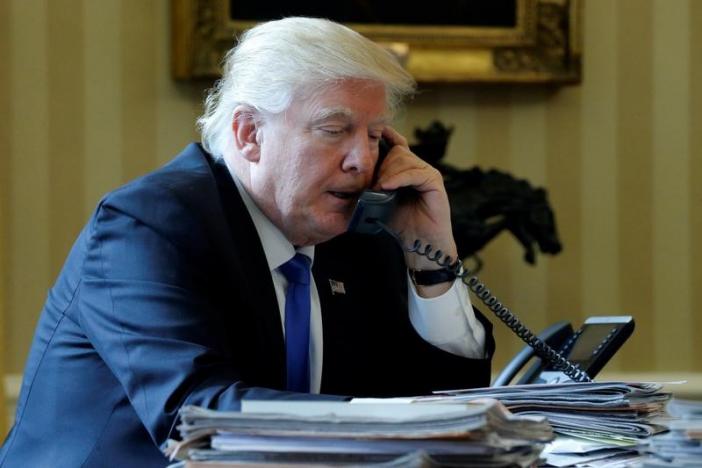Washington – U.S. President Donald Trump stated that he carried out an essential step to enhance U.S.-Russian relations and to assure his allies of the importance of NATO, through a phone call with the Russian President Vladimir Putin.
“The positive call was a significant start to improve the relationship between the U.S. and Russia that is in need of repair,” the White House said in a brief statement. Trump and Putin agreed upon “mutual cooperation to defeat ISIS,” added the statement.
On Saturday, Trump signed an executive order that grants the army 30 days to put a new strategy to defeat ISIS and to determine new partners at the coalition, which is led by U.S.
After years of tense relations between Russia and the U.S., during former U.S. President Barack Obama’s term, which included pausing accusations to the Kremlin of getting involved in the U.S. elections, Trump reiterated his will to enhance relations with Putin.
Amidst the European concerns of Trump’s statements regarding the NATO, the U.S. President underscored during a phone call with Germany’s Chancellor Angela Merkel the importance of NATO.
Also, the White House affirmed that Trump will attend the G20 Summit on July.
In another phone call with French President Francois Hollande, Trump highlighted necessity of sharing the defense costs. He, previously, criticized the NATO members and accused them of benefiting from the U.S. protection without paying the costs.
Hollande, in his turn, called on Trump to respect the concept of hosting refugees as a response to Trump’s executive order that bans entrance of “extremist Islamic terrorists” from seven Islamic countries (Iraq, Iran, Libya, Somalia, Sudan, Syria and Yemen).
U.K. Prime Minister Theresa May also expressed rejection of this ban, ensuring that she will interfere if these restrictions influence British citizens.
